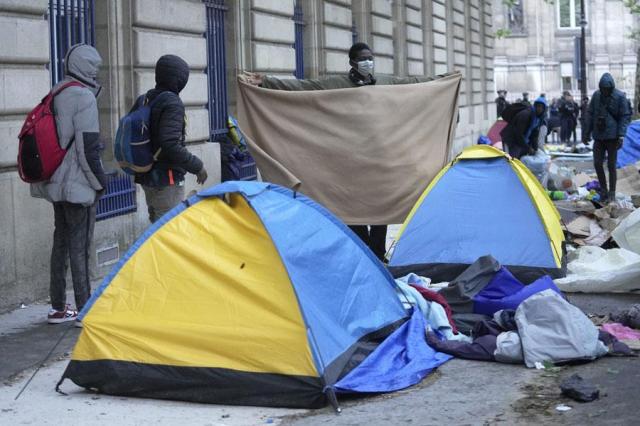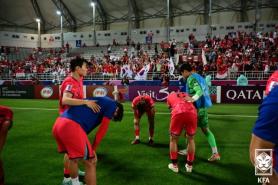
SEOUL, May 13 (AJU PRESS) - Athletes from around the world are gearing up for the 2024 Summer Olympics that are being held in Paris this year. While the Games are often billed as a beacon of global unity, they have historically marginalized the most vulnerable communities in host cities.
The International Olympic Committee (IOC) routinely makes grandiose claims about its commitment to humanity. Looking over the Olympic Charter and the IOC's guiding philosophy of "Olympism," it's hard not to be struck by the organization's promises, however empty they may be.
Yet, time and again, the Games have further disadvantaged some of the world's most marginalized people in host cities. For Paris 2024, the outcome will be no different. The nations of the world will look the other way, ignore the consequences of the Games and celebrate a new crop of athletes – fulfilling the Olympic's motto of "faster, higher, stronger" – while embracing displacement, gentrification and bigotry.
Displacing unhoused people
In April, hundreds of people, including displaced communities, were evicted from makeshift shelters in a camp south of Paris. This is only the most recent example; police have carried out numerous evictions in the run-up to the Games.
These evictions are a clear example of how the Olympic Games are used as a pretext to displace marginalized people to sanitize a host city's image before the global spectacle.
Authorities say the evictions are not connected to the Games. However, in July 2023, a new law was passed imposing large fines and prison sentences for illegal occupation.
Displaced communities encounter significant mental health risks, which primarily arise from their prior experiences of false persecution, war and having to leave their home countries. The prolonged migration process in European countries further exacerbates the risk of displaced communities experiencing mental health symptoms and disorders.
Research further shows that factors like unstable living conditions, and the breakdown of social and cultural ties further compound vulnerability, increasing the risk of mental health symptoms and disorders among displaced communities.
Forcing people to leave the only places they can find shelter to accommodate events like the Olympic Games only compounds the trauma many have already experienced.
Hijab ban
The French government's stance on French Muslim women athletes wearing hijabs remains one of the most contentious issues surrounding the Paris Olympics.
In September 2023, French Sports Minister Amelie Oudea-Castera reiterated that French athletes will be banned from wearing hijab. That casts doubt on how inclusive the Paris Games will be.
The French government's ideological view regarding religious symbols directly conflicts with the IOC's regulations that permit athletes to express their religious beliefs, including wearing religious attire like the hijab.
The United Nations Human Rights Office and Amnesty International have said such bans infringe on Muslim women's rights and freedom.
Furthermore, various Muslim women athletes like Diaba Konaté have left France, or are thinking of leaving the country, in search of sporting environments that respect their religious beliefs.
The hijab ban not only violates the fundamental right of Muslim women to follow their religious beliefs, but also contradicts the core principles of equality espoused by the Olympics.
The hijab ban also starkly contradicts the French government's proclaimed commitment to equality through sports by effectively excluding Muslim women who want to wear a hijab.
Double standards of Western media
Despite clear and documented instances of human rights abuses linked to the upcoming Paris Olympics, much of the western media and political leaders have remained conspicuously silent.
Many western athletes, commentators, news outlets and politicians were previously critical of the human rights records of countries like Azerbaijan, Russia, China and Qatar when they hosted mega sporting events. Many claimed that those governments were using sporting events to launder their human rights records.
Some even called for boycotts and bans. Yet, that kind of criticism is rarely directed inward as well.
Researchers have previously argued that western media reports human rights abuses in the West with a tilted bias suggesting westerners are morally superior and concerned, framing issues as isolated rather than systemic.
For instance, a recent study outlines how British media portrayed English cricketer Azeem Rafiq's allegations of racism against the Yorkshire County Cricket Club. The media narrative suggested that British society is aware of racism, accepts criticism and is ready to act.
However, the same media also portrayed Rafiq as an outsider and his allegations as isolated incidents.
Western media's inconsistent condemnation of sportswashing and limited criticism of hosts in the West obfuscates a harsh reality. These mega events, whether in Beijing or Los Angeles, Rio de Janeiro or Paris, come at a grim human cost.
It's high time the West looked in the mirror. The Paris 2024 Olympics will not be the scene of renewed efforts toward "social responsibility and respect for internationally recognized human rights." In many ways, it's already a failure in those respects.
After more than 100 years of repeated harms, perhaps it's time to consign Olympism to the dustbin of history. We must speak bluntly and honestly about these mega sporting events, identify their limitations and voice meaningful opposition regardless of which nation is hosting. If that means a world without the Olympics, so be it.
-------------------------------------------------------------------------------------------------------------------------
Umer Hussain is an assistant professor of sport management at Wilkes University in Pennsylvania
Adam Ali is an assistant orofessor of School of Kinesiology at Western University in Ontario, Canada.
MacIntosh Ross is an assistant professor of Kinesiology at Western University in Ontario, Canada.
Shakiba Moghadam is a lecturer in Psychology at Solent University in Southampton, the U.K.
This article was republished under a Creative Commons license with The Conversation. The views and opinions in this article are solely those of the authors.
https://theconversation.com/paris-2024-olympics-how-the-games-are-being-used-to-marginalize-the-most-vulnerable-228855
Copyright ⓒ Aju Press All rights reserved.



